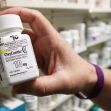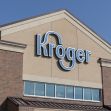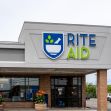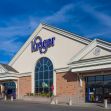Kroger is the latest player to settle claims related to opioid overprescription and overdose lawsuits. Earlier this month, the grocery store chain agreed to pay $1.4 billion over the next 11 years for its role in the national opioid epidemic.
Kroger currently operates nearly 1,300 stores across the US. The grocery chain has locations in 35 states spanning the country except for the Northeast, the Northern Plains, and Hawaii. This recent settlement will apply to 33 states, as New Mexico and West Virginia previously announced settlement deals with the grocery store chain.
The lawsuit against Kroger claims that the chain helped fuel the opioid epidemic by having relaxed oversight policies regarding the sale of prescriptions. Among the allegations is failing to monitor suspicious prescriptions of painkillers.
Where Will Settlement Money Go?
Under Kroger’s settlement agreement, the company will pay out $1.2 billion to state and local governments included in the lawsuit as well as $36 million to Native American tribes. About $177 million will be allocated for lawyers' fees and costs.
As with many of these big-player settlement deals, the money awarded to state and local governments is allocated for community resources to help tackle the effects of the opioid epidemic. Settlement recipients use the funding in a variety of ways including creating community support for addicts and others impacted, increasing community outreach and education, and establishing resources and community initiatives to help communities impacted by the opioid epidemic.
Every year, an average of 80,000 deaths are linked to overdoses. Areas such as rural Appalachia have been some of the hardest hit, with West Virginia often described as the epicenter of the crisis due to having the highest number of overdose deaths.
According to data from West Virginia state officials, there were 1,253 opioid-related overdose deaths in 2021. These opioid overdose deaths accounted for 83% of all drug overdoses in the state.
On a national level, opioid overdose deaths accounted for 75% of all drug overdoses nationwide in 2021.
How Are Cases Playing Out Across the US?
Settlements have continued to be reached since litigation began over eight years ago. For nearly a decade, prosecutors have targeted prescription drug manufacturers, wholesalers, consultants, pharmacies, and others in their role in the opioid crisis. Total settlement amounts related to the opioid epidemic hover above $50 billion but will rise as more cases get settled.
Purdue Pharma, the maker of Oxycontin, has been at the center of recent litigation after the Supreme Court blocked the drug maker's bankruptcy settlement. The settlement would have granted the company's owners, the Sackler family, immunity from civil lawsuits related to the opioid epidemic. The Sackler family is at the center of the blame game for the opioid epidemic and will pay out an estimated $5.5 billion for their role.
By and large, settlement deals with the biggest players in the opioid epidemic have been reached. Still, litigation continues with smaller-scale parties, including supermarket chains Albertsons and Publix and pharmacy benefits managers Express Scripts and OptumRx.
Kroger follows the lead of many other defendants who were defendants in an opioid-related lawsuit as Kroger maintains that there was no wrongdoing or liability on its part. The company shared in a statement following the settlement, “Kroger has long served as a leader in combating opioid abuse and remains committed to patient safety.”






